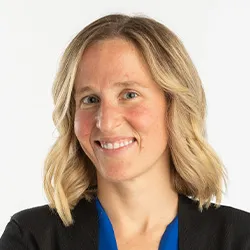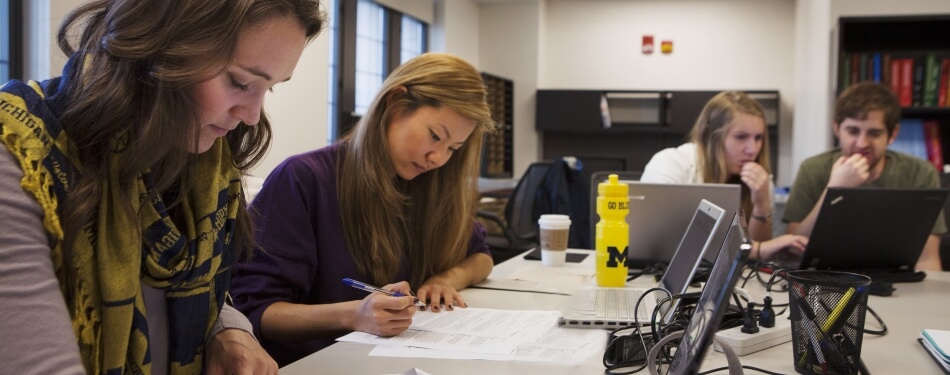The Entrepreneurship Clinic is an innovative clinical law program that helps U-M and non U-M innovators and startups launch and grow their businesses.
The first of its kind in the United States, the Entrepreneurship Clinic plays a central role in the entrepreneurial ecosystem at the University of Michigan and beyond.
Since its inception in 2012, the clinic has provided no-cost legal services to a significant number of student-led and other startups. We offer an array of services and resources including direct legal representation, office hours, workshops, and blog posts with current information about entrepreneurial legal issues. We also host the Ann Arbor New Tech meetup. The direct legal services we offer includes entity formation, intellectual property protection, advice on worker classification issues, advice on various contracts, financing and deal-making.
These services help innovators launch and grow their businesses. The clinic also provides law students with the real-life experience needed to help early-stage companies after they graduate from law school
The Entrepreneurship Clinic provides general educational information concerning legal issues common to start-up ventures. Through weekly office hours, clinic faculty and students meet with hundreds of entrepreneurs each year and provide hundreds of hours of legal information to individuals and organizations throughout the U-M campus.
These office hours are held throughout the Ann Arbor campus at locations that include the Zell Lurie Institute (ZLI), the Center for Entrepreneurship (CFE), and TechArb. We are currently holding office hours at the times and locations noted below. Please email [email protected] to confirm an upcoming office hour and to reserve a time to meet with a clinic member.
Disclaimer: The Entrepreneurship Clinic offers educational information to the local and University of Michigan community. By providing this educational information, the clinic is not forming any attorney-client relationship nor does this information constitute legal advice. You should consult your own attorney to receive specific legal counsel related to your particular situation. In order to become a client of the clinic and receive legal advice from the clinic, you must apply for legal services. If accepted as a client, both the clinic and you must sign a formal written engagement letter before there will exist an attorney-client relationship between the clinic and a client and before the clinic will provide any legal advice to a client.
The Zell Entrepreneurship and Law (ZEAL) Program at Michigan Law is a unique program that provides both practical and theoretical training to law students interested in working with entrepreneurial businesses.
The cornerstone of ZEAL is the Entrepreneurship Clinic, where student attorneys, under the guidance of supervising faculty, offer free legal advice and legal services to the University of Michigan’s burgeoning number of student entrepreneurs from across all schools and disciplines on the Ann Arbor campus, as well as entrepreneurial ventures in Southeastern Michigan.
Supplementing the Entrepreneurship Clinic are courses taught by full- and part-time faculty who have experience working with both startups and existing entrepreneurial businesses. Students will learn about venture finance, private equity, startups, real estate, mergers and acquisitions, investment banking, IPOs, intellectual property, employment law, and related areas.
Seeded with a gift from Sam Zell, ’66, a Chicago-based entrepreneur who earned his undergraduate and law degrees at Michigan, ZEAL is part of wider U-M initiatives geared toward entrepreneurial development, including:
- The Samuel Zell and Robert H. Lurie Institute for Entrepreneurial Studies at the Ross School of Business (ZLI)
- The Center for Entrepreneurship (CFE) within the School of Engineering
- The Michigan Venture Center
- student-run programs like the Wolverine Venture Fund
- A variety of competitions and grant programs that encourage student startups

IndustryStar
Read more

Elegus Technologies
Read more

SkySpecs
Read more

Cart
Read more

Flipsi Baby
Read more

Sahi Cosmetics
Read more
Information for Students
-
How do law students apply to the Entrepreneurship Clinic?
Second- and third-year law students should register for the seven-credit clinic through the Law School’s computerized registration system.
-
Are there prerequisites for taking the clinic?
There are no prerequisites for taking the clinic. Because much of the client work will be in corporate, tax, intellectual property, and other business areas, students will likely find prior course work in those areas helpful.
-
Is the clinic graded?
The clinic is a seven-credit course—three for the seminar and four for the client work. The three-credit seminar is graded and the four-credit portion for the client work is pass/fail.
-
How often will the clinic meet?
The clinic includes a three-credit seminar. The classroom component addresses topics including how to effectively represent entrepreneurial ventures, interviewing and counseling clients, negotiating and drafting documents, planning client matters, cross-cultural lawyering, entity formation, financing the entity, intellectual property, legal ethics, and other relevant topics. Clinic students also participate in “case rounds” in which they present and discuss the various matters the clinic is handling.
Beyond the seminar class meetings, the clinic involves frequent meetings with the clinic faculty, clients, and fellow student attorneys.
Law students taking the clinic should expect a significant amount of work (including independent research and education) to sufficiently address the diversity of legal needs that entrepreneurs present. Student attorneys should expect to spend at least 12-16 hours each week representing their clients. In addition to this client representation, student attorneys attend four hours of class each week, prepare for each class, meet with their supervising faculty, attend local entrepreneurial events, and plan and deliver educational sessions (e.g., office hours, presentations, and publications) to the local community. Student attorneys will have a set five-hour period each week when they must be present in the clinic space. In short, law students taking the clinic should plan their semester accordingly so they can devote the necessary time to the clinic and their clients.
-
Can non-law students take the clinic?
Because the clinic focuses on teaching how to advise entrepreneurial ventures in the capacity as a lawyer, only law students may apply to be students in the clinic. On the other hand, any University of Michigan student may apply to be a client of the clinic.
-
Is it difficult for a law student to get into the clinic?
The clinic has experienced high demand from law students. The clinic seeks to admit a well-rounded group of student attorneys that can sufficiently meet the legal needs of the clinic clients.
Adding an image



